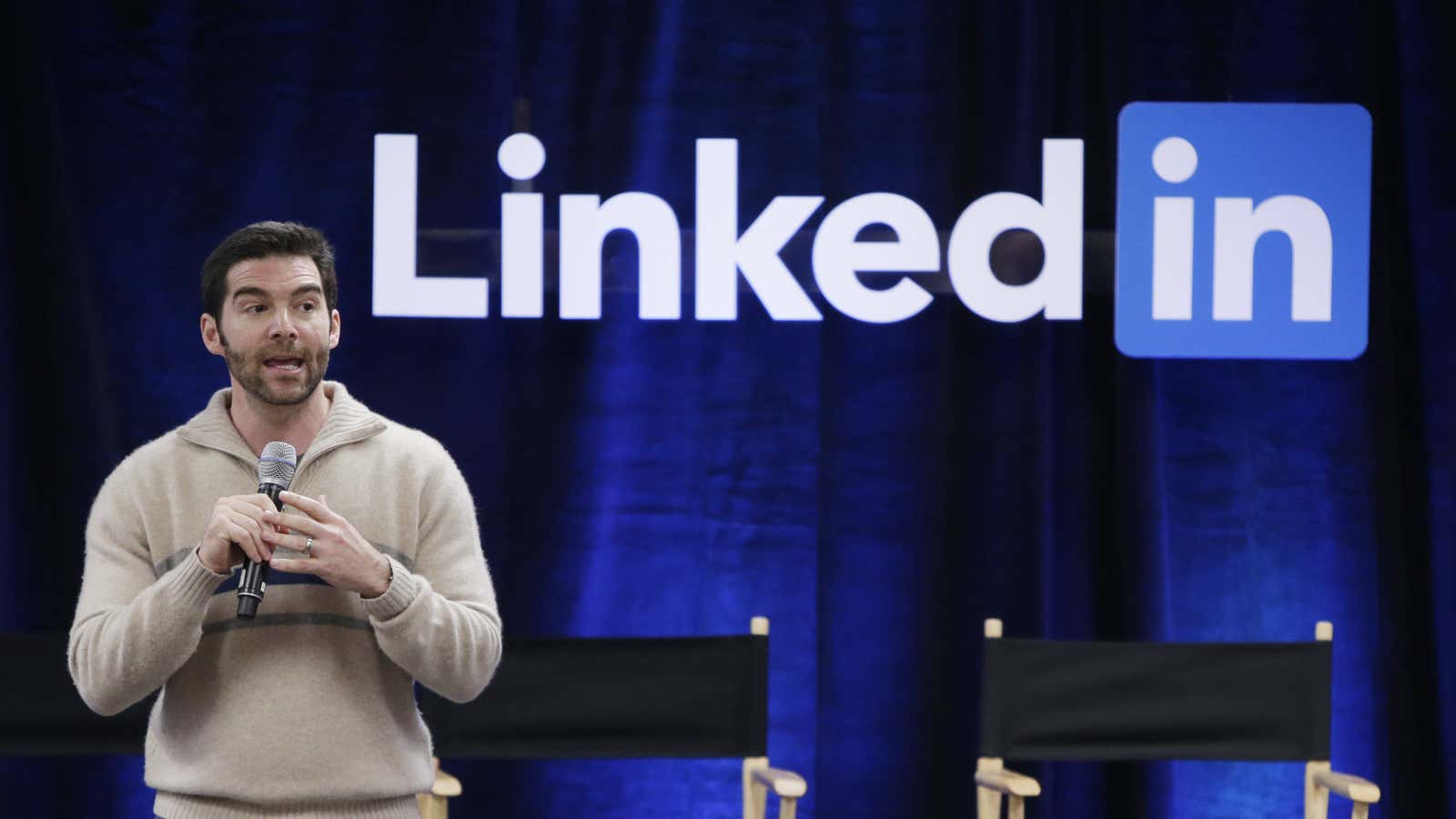Ask anyone which professional skill is most in demand right now, and they’ll likely say coding. But ask LinkedIn CEO Jeff Weiner, and he’ll give you a different answer.
As head of the world’s largest professional-networking site, Weiner presumably has access to more, and more detailed, employment information than any government. He knows what jobs people post, what jobs people have, and what jobs people want. And the biggest skills gap he says he sees in the United States is soft skills.
What most employers want, Weiner says, are written communication, oral communication, team-building, and leadership skills. Never mind that salaries for coders (a median $103,560 in the US in 2017, according to the Bureau of Labor Statistics) indicate that it’s technical chops that are valued right now. Soft skills have staying power.
“As powerful as AI will ultimately become and is becoming, we’re still a ways away from computers being able to replicate and replace human interaction and human touch,” Weiner said at a Wired forum on the future of work. “So there’s a wonderful incentive for people to develop these skills because those jobs going to be more stable for a longer period of time.”
Wired editor in chief Nicholas Thompson agrees that jobs involving social interaction and social skills will be most protected in our automated future. ”I think we overrate coding and engineering as a long-term profession,” he told us at the Oct. 12 event, which was held at Wired’s San Francisco headquarters. “It’s something that machines powered by artificial intelligence will be really good at.”
Right now, interest in coding is still growing.
Perhaps the popular bootcamps of tomorrow will be those that can teach us how to have a conversation.
